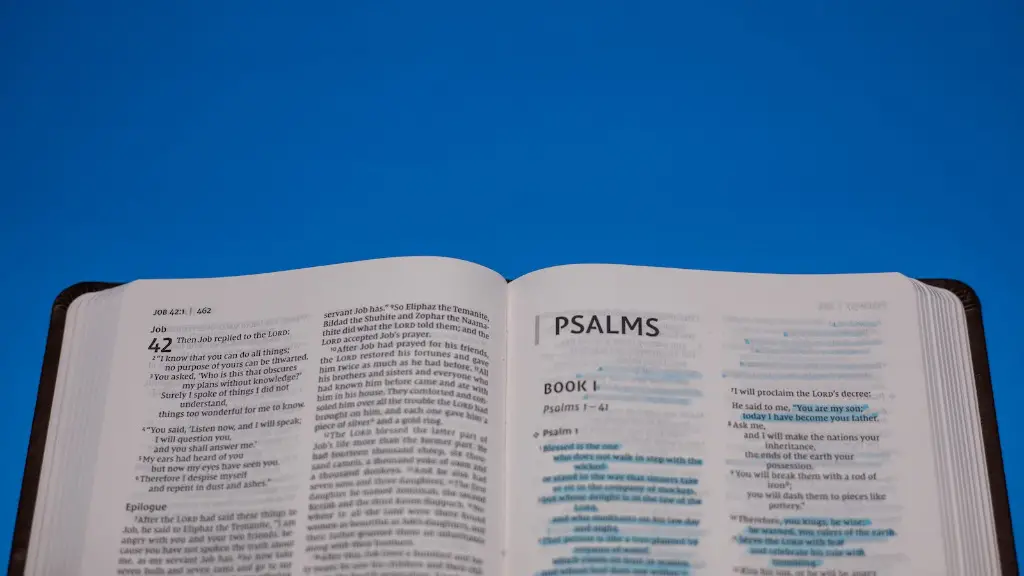With acknowledgement to the numerous origins of the name – ‘Jah’, the Bible being revered by millions around the globe, gives us insight into the concept of ‘Jah’. There are instances of the word occurring in the Bible. ‘Jah’ is a shortened word of the Hebrew word ‘Yah’, which is part of the name Jehovah or YHWH (Yahweh), uttered as ‘Ya’ and is taken to mean the Lord.
The word ‘Jah’ has appeal because of its unambiguousness and simplicity – it is free from doctrinal associations, yet still holds within it the universal thought and understanding of God’s all encompassing power, love and protection. Jah conveys the idea of all-powerful protection, especially for those in need. It is therefore it is seen as a more personal, intimate way of referring to God than some of the more formal terms.
It is believed by some biblical scholars that the term first appears in Exodus 15:2 and was probably derived from an ancient origin. It is written, “The Lord is my strength and song, and he is become my salvation: he is my God, and I will prepare him an habitation; my father’s God, and I will exalt him.” According to some academics, this phrase could actually be interpreted as “My God is Yah and I will exalt him”.
The biblical King James Version of the Bible translates it this way: “The Lord is my strength and song, and He is become my salvation: He is my God, and I will prepare him an habitation; my father’s God, and I will exalt him.” In other translations, the phrase is translated to “My God is Ya” and this is attributed as the origin of the term ‘Jah’.
It is believed that ‘Jah’ was also commonly used in conjunction with other divine names such as ‘Elohim’ and ‘Yahweh’, making it an integral part of ancient Hebrew faith.Furthermore, ‘Jah’ is mentioned in some of the oldest biblical texts in Psalm 68:4, where it states that the “Lord is known as the God of Jah,” and Psalm 68:5 which states that “The God of Jah is a mighty God.”
Many gospel songs and contemporary Christian lyrics also mention ‘Jah’ because of its appeal to many followers of different sects and religions that find comfort in the name. It is a term of endearment and respect used by many.
Comparative Reference to other Religions
Similar to the way in which Jah is part of the Hebrew faith in the Bible, Jah is referred to as a part of Rastafarian beliefs as well. According to Bruce St. John, scholar of African studies and professor of African history at the University of South Africa, “Jah is “the living God who rules in the hearts of men and women.” He wrote in his article, “ Overview of Rastafari,” that “Jah is usually used in conjunction with the word Rastafari,” giving it a meaning of “God of the Rastafari people.”
Though ‘Jah’ is mentioned in the Bible, the way in which it is used in the Rasta faith is more of an expression of the personification of God. Jah is used to refer to not just a name for God, but for his principles and beliefs related to love, justice and compassion.
Jah Symbolism in Contemporary Culture
As a result of its association with love, justice and compassion, ‘Jah’ is gaining prominence in contemporary culture. It has been seen used in modern music, art and culture and is increasingly brought into conversations about faith and spirituality. There has recently been a surge in popularity of the term ‘Jah’ among Caribbean, African-American and Jamaican cultures in particular, where it is used in reference to the god figure of their respective religions. This term is seen in gospel songs, reggae and rap music, where artists such as Bob Marley, Damian Marley and Nas have all used the term in their music to express their beliefs and discuss universal issues.
Jah, A Unifying Concept
It’s not just religious believers who associate with the term ‘Jah’ but many non-believers as well. Sacha Gregory an occasional writer for The Atlantic states that ‘Jah’ is a concept with deep spiritual and moral resonance, whether believers or non-believers draw from it. Gregory goes on state that it has … the power to unite us across all faiths and beliefs, in the understanding that we’re all searching for a higher power, and a more meaningful way of life, and this concept could be the bridge that unites different cultures and ideologies.” This concept of unity resonates with many as it speaks of a universal faith in something greater than ourselves,that could lead to a better understanding of each other and the potential for positive change in the world.
Prevalence of Jah in Music Lyrics
The prevalence of the use of ‘Jah’ in music lyrics is likely to continue as beliefs and faith evolve and musicians attempt to make sense of the world through their lyrics. This is partly due to its universal appeal and that it is an umbrella term used to describe the complex idea of the ‘Divine’, regardless of specific religion or denomination. Jah is seen as the ‘Divine power’, and the acknowledgement of ‘Jah’ in music is a reminder to self, creator, and the collective to strive for justice and compassion.
The impact of Jah in 2021
Today ‘Jah’ has become a symbol representing a higher power that is expored and celebrated even at a non-religious level. A quick search of social media platforms will reveal how people from diverse backgrounds and cultural practices use ‘jah’ in their posts as an expression of a universal shared understanding.
It is evident that religion today, though still a prominent part of life across the globe, has become less of a restrictive entity confined to a particular creed or set of beliefs and more of a loose,evolving collective of faiths interconnected by underlying commonalities. This is where the term ‘Jah’ plays a valuable role,lt serves as a reminder of this unity, connecting us to something greater than ourselves and unifying us in a shared experience that transcends all denomination.
Jah In Popular Culture
‘Jah’ also increasingly, appears in popular culture, so much so that it is easy to forget its origis in the Bible. Pop culture references to ‘jah’, ranging from popular songs and films, to graphic art and children’s literature, demonstrate that, regardless of the traditional Judeo-Christian roots of the concept, it has truly become a global ‘conceptual symbol’.
A search in the music streaming platform spotify reveals how the concept of ‘jah’ has been embedded seamlessly and invisibly into many genres of music. The music of genres ranging from reggae, to hip-hop, to gospel, and even pop incorporate ‘jah’ into the language and are similarly delivered with a unifying message of inclusivity love and justice.
It is clear to see that ‘jah’ is no longer solely the property of the Christian faith and instead, has transcended its traditional bounds and infiltrated culture in many different ways. It has become more than a religious term, and has evolved from a purely theological concept to a concept of global appeal and resonance in wider society.
role of Jah in the Arts
‘Jah’ is also referenced in many forms of art, including graffiti, urban art and visual arts. The term ‘jah’ is often seen as a part of street art and graffiti, accompanied by fonts, symbols, and designs creating a unifying imagery. This reflects upon the idea that ‘jah’ is part of a larger spiritual, philosophical and even a political concept, contributing to a collective identity that is vast and ever-changing.
The popular 1990s reggae vocalist, Jimmy Cliff, emphasizes the role ‘jah’ plays in the arts so profoundly, with his songs “Jah JAH City” and “ Jah Love.” He believes it is his duty through his art, to deliver messages of positivity, love, and justice, to a wider audience.
Visual depictions of ‘jah’ are today seen in forms of large art installations, often represented by large symbols and symbols of the divine. Graphic art featuring The Lion of Judah, spiritual symbols, and the African continent, often with the word ‘jah’, is often seen and discussed on different levels of visual interpretation.




